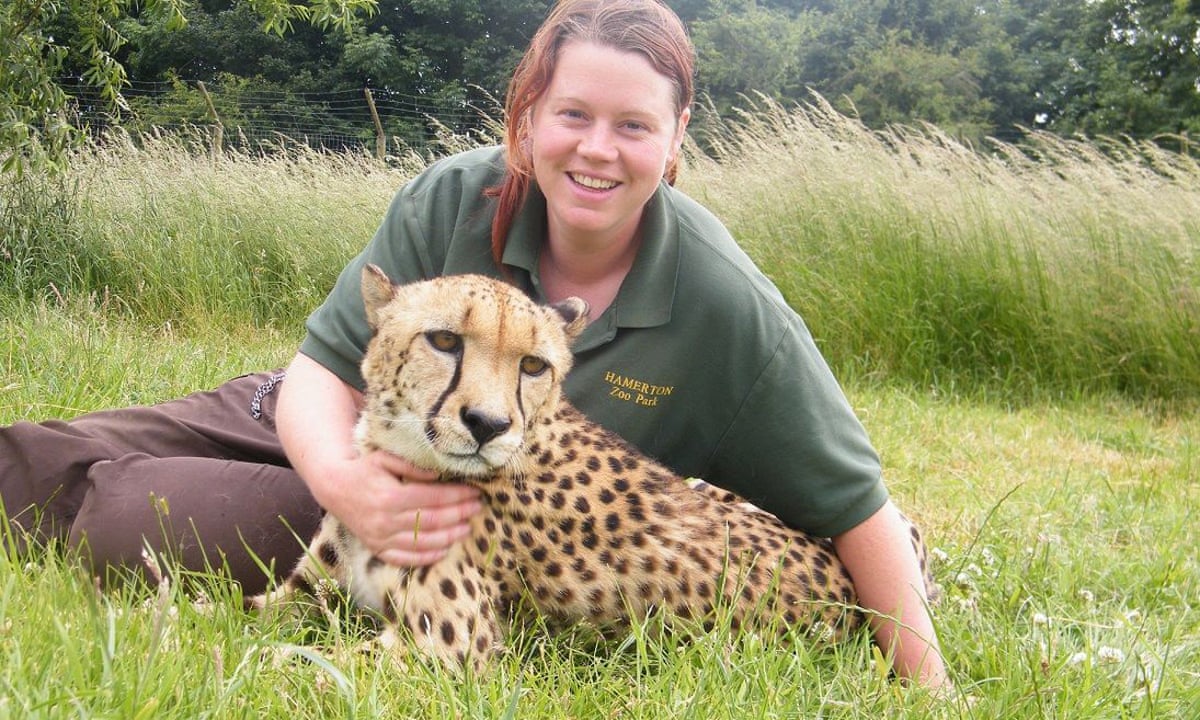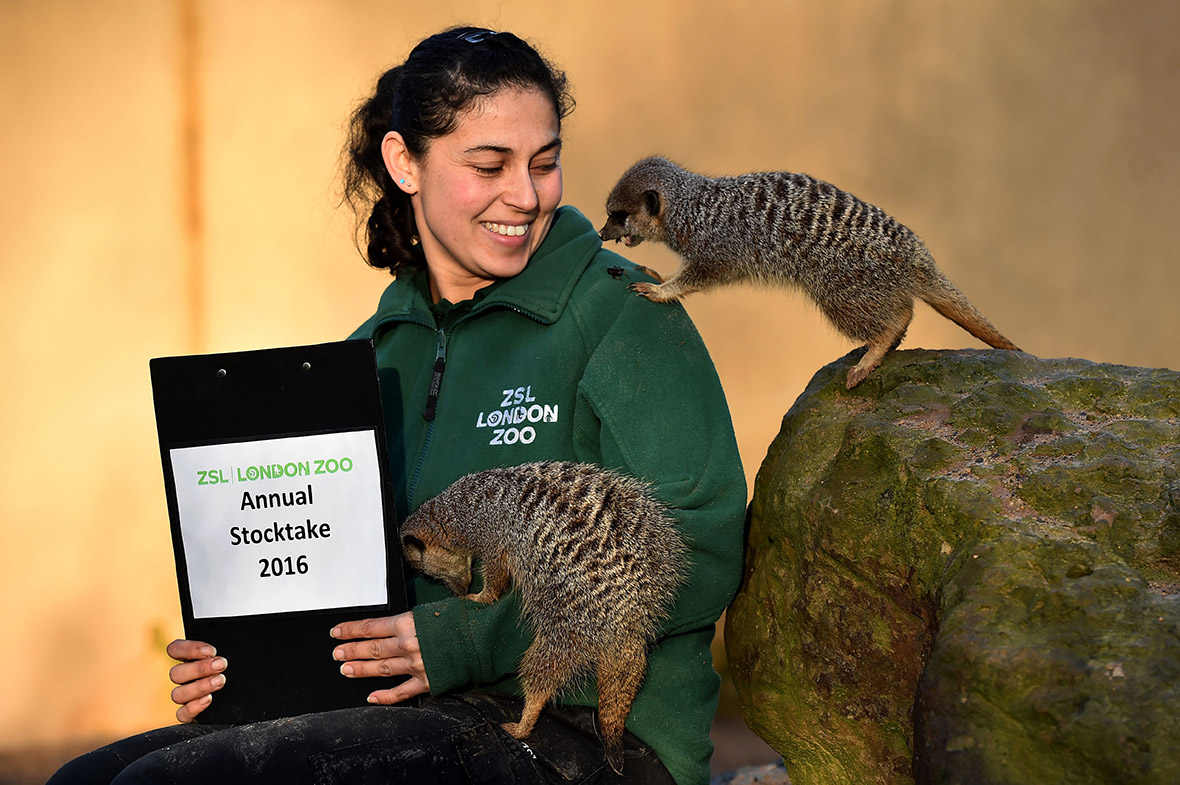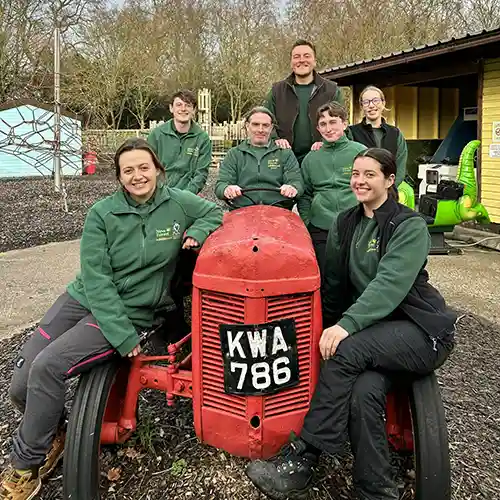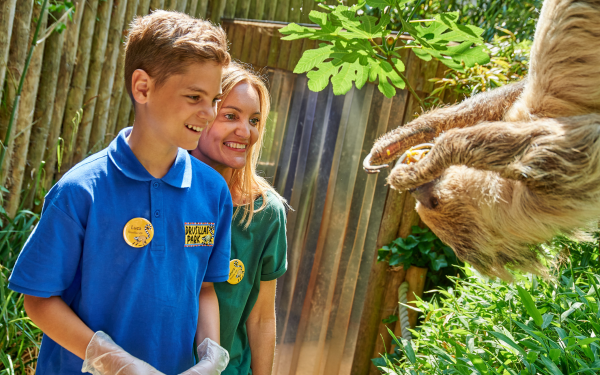How To Become A Zoo Keeper?
페이지 정보

본문

"The greatness of a nation and its ethical development can be evaluated by the way its animals are dealt with." - Mahatma Gandhi

Do you love animals and imagine operating in a zoo? Zoo keepers are type in securing wildlife and taking care of animals. At locations like the Zoological Society of London (ZSL), over 20,000 animals get the care they need from specialists.
To become a zoo keeper, you require hard work, education, and a love for animals. This task is interesting, letting you deal with lots of species and aid with crucial preservation work. If you're into wildlife or animal welfare, zookeeping might be perfect for you.
Beginning your zoo keeper career means learning what's needed. This guide will cover education, experience, and more. It's all you need to understand to start a fulfilling zookeeping career.
Understanding the Role of a Zookeeper
Exploring what a zookeeper does reveals a role full of obstacles and benefits. They focus on animal welfare and conservation. Zookeepers strive to keep animals healthy and happy in their care.
Daily Responsibilities and Tasks
A zookeeper's day is filled with important jobs:

- Preparing meals that fulfill each animal's nutritional requirements
- Cleaning up enclosures to keep them tidy and safe
- Watching over animal health and behaviour
- Offering medicines and treatments as required
- Producing activities to keep animals mentally sharp
Workplace and Conditions
Zookeepers work outside in all type of weather condition. They manage both indoor and outside spaces. The task requires being healthy and able to deal with the demands of looking after animals.
"Being a zookeeper is more than a job - it's an enthusiastic dedication to animal care and conservation."
Kinds of Animals and Specialisations
Zookeepers can specialise in numerous animal groups:
- Primates
- Big cats
- Marine mammals
- Reptiles
- Birds
Your role might involve dealing with 2-5 different animal types. This requires a lot of understanding and the ability to adapt.
Important Skills and Personal Qualities for Zoo Keeping
To be a leading zookeeper, you need more than just a love for animals. Your task will be tough and require you to handle animals and people well. You'll likewise need to understand animal behaviour.
What zoos look for in individuals consists of:
- Exceptional persistence and emotional strength
- Strong physical fitness and endurance
- Keen observation abilities
- Ability to stay calm under pressure
- High level of compassion towards animals
Getting hands-on experience is crucial to mastering this function. You'll require to reveal:
- Advanced understanding of animal care methods
- Efficiency in animal handling and safety protocols
- Effective interaction with both animals and human visitors
"An excellent zookeeper links science, empathy, and conservation in every interaction with animals."
You need to understand about animal nutrition, behaviour, and zookeeper basic veterinarian care. Most zookeepers learn through training, offering, zookeeper and zookeeper ongoing learning.
Zookeeper work is not just a job. It's a huge commitment to teaching about wildlife and helping preservation. Your enthusiasm and effort will make you stand apart in this fulfilling profession.
How to Become a Zoo Keeper
Starting a career as a zookeeper needs cautious preparation and education. You need to first understand the instructional requirements and training paths. These will turn your love for animals into a job.
Educational Requirements
To be an excellent zookeeper, you require a strong scholastic base. A lot of tasks try to find specific certifications:

- At least 5 GCSEs at grade 4 or above, consisting of English, maths, and science
- A levels or higher education credentials
- A college degree in biology or animal science
- Level 3 Diploma in Animal Management
Necessary Certifications
Getting unique certifications can truly help you in your zookeeper career. Essential ones include:
- Diploma in Management of Zoo and Aquarium Animals (DMZAA)
- Zookeeping Level 3 Diploma (RQF)
- Animal managing certificates
- Emergency treatment certifications
Training Programs and Apprenticeships
Getting hands-on experience is key in zookeeper training. Many locations offer great possibilities:
- Unpaid apprenticeships at wildlife parks
- Internship programs at well-known zoos
- Practical training at locations like Colchester Zoo and Dartmoor Zoo
- Offering to acquire real-world abilities
Pro tip: Create a comprehensive portfolio to show your animal care skills. It will assist you in task applications.
Building Relevant Experience in Animal Care
Getting hands-on experience is key for those wishing to be zookeepers. The task is extremely competitive. So, it's essential to begin developing a strong base in animal care.
Your journey starts with finding methods to work directly with animals. This is a strategic action.
"Experience is the very best teacher in animal care" - Wildlife Conservation Experts
Here are effective ways to get experience working with animals:
- Volunteer at regional animal shelters to establish fundamental animal dealing with abilities
- Look for internships at wildlife rehab centres
- Explore part-time positions at veterinary clinics
- Contact your local zoo for possible volunteer opportunities
Offering is a fantastic way to learn more about animal behaviour and care. Many zoos and animal shelters are searching for people who wish to discover. These locations provide fantastic chances to get hands-on experience and show your dedication to animal welfare.
Here are some tips to maximize your experience:
- Keep a record of your abilities and interactions
- Connect with experts in animal care
- Request referrals and letters of recommendation
- Stay persistent and reveal your true passion
Remember, practical experience makes you stand out in the zookeeping world. Each time you work with animals, you learn more. This increases your opportunities of getting a job in animal care.

Career Pathways and Professional Development
Beginning a profession as a zookeeper is amazing. It offers numerous opportunities to grow and specialise. Your journey starts with understanding the various paths in this field.
Entry-Level Positions
Entry-level jobs in zookeeping are a great start. They give you hands-on experience. Zoos search for candidates with:
- Level 2 Diploma in Animal Care (minimum certification)
- GCSEs in English and a clinical topic
- Volunteer experience at animal shelters or farms
Career Progression Opportunities
As you acquire experience, your profession can grow. You can go up to:
- Junior Keeper
- Senior Keeper
- Team Leader
- Expert Roles
"Continuous learning and useful experience are crucial to advancing in your zookeeping career."
Specialised Roles
You can also choose special locations like:
- Conservation breeding programs
- Animal training
- Wildlife research
- Educational outreach
About 25% of zookeepers get advanced degrees in zoology or animal preservation. Getting Level 4 credentials can boost your opportunities for senior roles and research study.
Working Hours and Physical Demands
Ending up being a zookeeper suggests you'll work more than just routine hours. You'll face hard physical obstacles and need to be flexible, including weekends and holidays. Zoos are open every day, so you'll typically work when others relax.
"Zoo keeping is not a common 9-to-5 job-- it's a way of life of dedicated animal care and commitment."
This job is physically demanding. You'll work outside in any weather, lifting heavy items over 50 pounds. Your tasks might include:
- Early morning feeding schedules
- Cleaning animal enclosures
- Preparing specialised diets
- Carrying out health checks
- Preserving complicated habitats
Shifts can start as early as 5 AM and go late into the night. You'll be on your feet the majority of the time, moving between animal zones. Weekends and holidays are part of the job, requiring lots of stamina and dedication.
In spite of the challenges, this job has great benefits. You'll grow strong, both physically and emotionally. You'll also make amazing connections with incredible animals.
Health and Safety Considerations
Being a zookeeper features its own set of difficulties. It's crucial to know how to keep both animals and staff safe. This indicates following rigorous health and wellness rules.
Zookeepers deal with a special environment where security is essential. Research studies reveal that health and safety are now as important as the zoo's primary work.
Danger Management Strategies
There are numerous methods to manage risks in zoos:
- Daily checks of animal enclosures for risks
- Counting animals at the start and end of shifts
- Watching how visitors act near animals
- Being ready for emergency situations
Animal Handling Safety Protocols
Knowing which animals are most unsafe is vital. Big animals like rhinos can be extremely risky. There have actually been cases where zookeepers got seriously harmed.
Safety isn't almost wearing gear - it's about knowing animal behaviour and staying alert.
Individual Protective Equipment
need to use the right gear, consisting of:
- Special gloves for dealing with animals
- Strong shoes for Zookeeper grip and safety
- Clothes that protects versus bacteria
Getting vaccinated versus diseases like liver disease B and rabies is likewise crucial. It assists keep zookeepers healthy in their tough job.
Income Expectations and Job Market
Considering a profession in zoo keeping? It's essential to learn about salaries and the job market. The field is growing, with more opportunities in the UK.
Let's look at what zoo keepers can make at various stages:
- Entry-level zookeepers start at about ₤ 14,000 a year
- Certified ones make between ₤ 16,000 and ₤ 22,000
- Senior zookeepers can make approximately ₤ 30,000 or more
The job outlook for zookeeper zoo keepers is good. The sector is expected to grow by 5% in the UK by 2029. This means around 3,910 brand-new jobs will be offered.
"The Association of Zoos and Aquariums supports expert development for zoo keepers," a report states.
Incomes differ based upon numerous things:
- Experience level
- Expertise
- Where you work
- The zoo's size and type
While the pay may not be high, the pleasure of working with animals is invaluable. The average income is around ₤ 17,000. However, total revenues can be in between ₤ 13,000 and ₤ 27,000 a year.
Conclusion
Starting a career in animal care is an interesting journey. It needs commitment, enthusiasm, and a love for knowing. With over 350 zoos and wildlife locations in the UK, there are numerous job chances. You'll get to work with amazing animals and assist secure wildlife.
To be a zoo keeper, you require more than simply love for animals. You must have a good understanding of biology, have the ability to interact well, and always wish to learn more. You'll gain hands-on experience, learn more about animal welfare, and develop a deep regard for nature. About 3,000 individuals in the UK have found fulfilling professions in this field.
Your success in zoo keeping comes from blending science with a love for animals. Whether you're interested in mammals, birds, or marine life, this task lets you assist with preservation. Every day will bring new challenges and discovering chances that will improve your skills and knowledge.
If you enjoy animals and want to assist secure wildlife, zoo keeping might be for you. Take on the obstacle, stay curious, and turn your enthusiasm for animals into a gratifying career.
- 이전글【토토 광고 프로그램 텔레 @TTSOFTKR12】 광고솔루션 네이버광고대행 하이브카지노 먹튀 SEO검색엔진최적화 구글검색광고 25.06.17
- 다음글Lysine 500mg From Lamberts 25.06.17
댓글목록
등록된 댓글이 없습니다.
